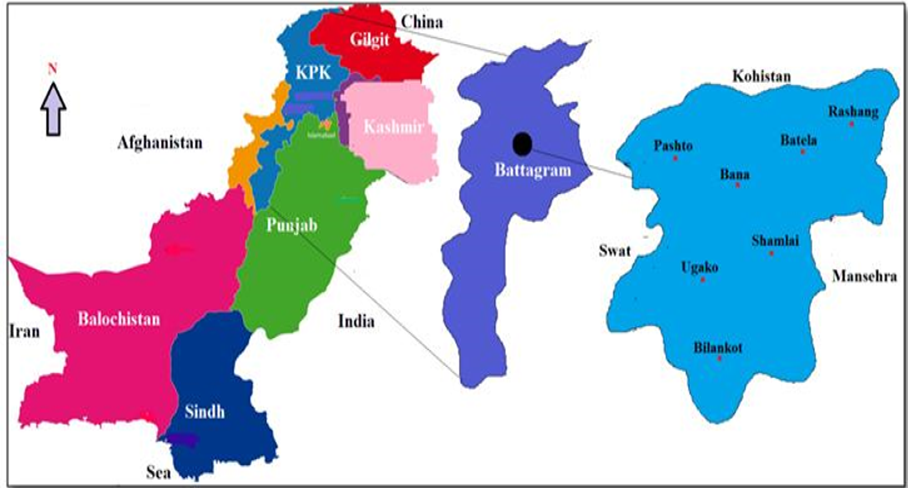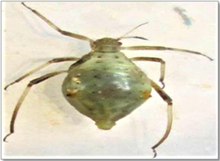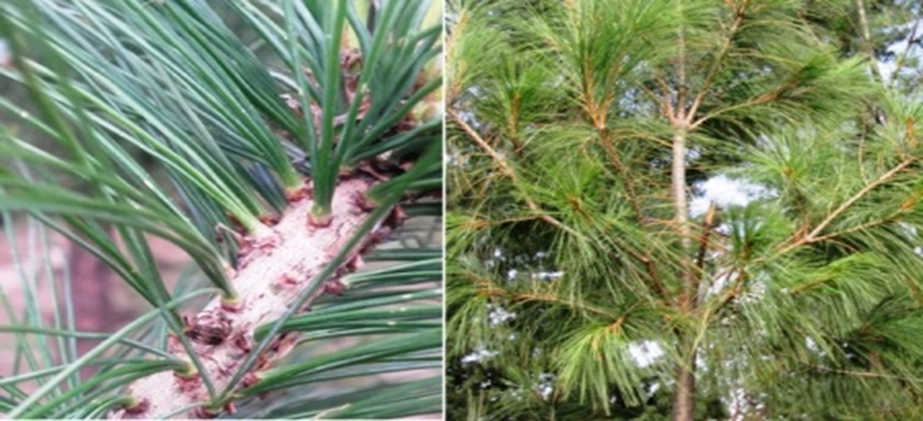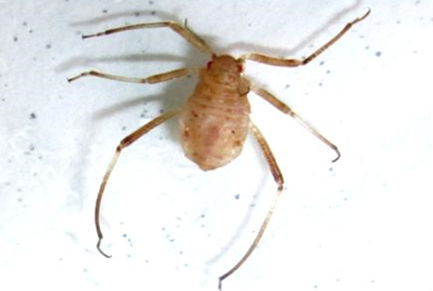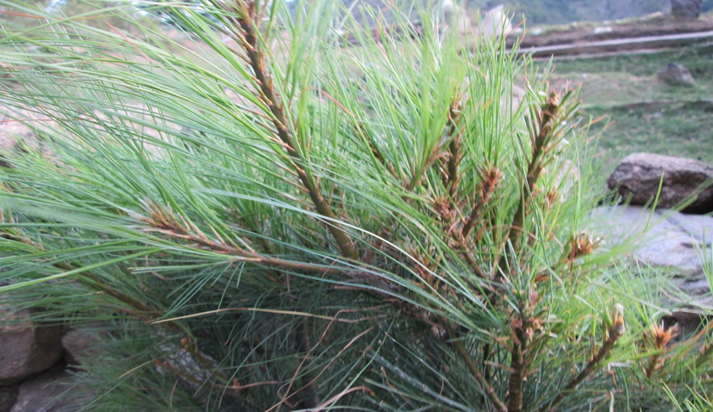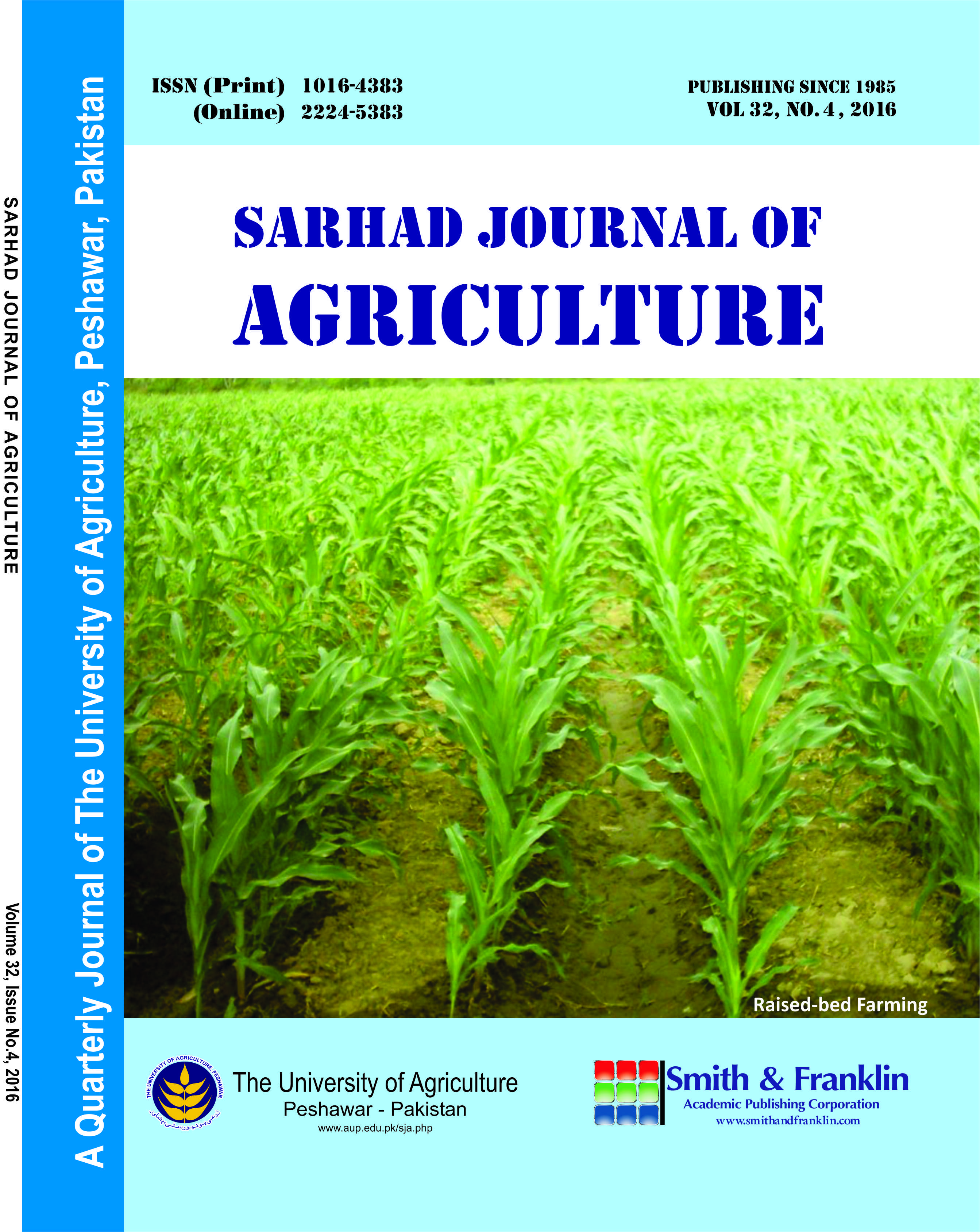Discovering Uncharted Territories: Adding Two New Records to Aphid Fauna of Pakistan, Unveiled in the Pine Plantations of District Battagram, Khyber Pakhtunkhwa Province
Discovering Uncharted Territories: Adding Two New Records to Aphid Fauna of Pakistan, Unveiled in the Pine Plantations of District Battagram, Khyber Pakhtunkhwa Province
Bakht Zada1, Ahmed Zia2, Sardar Azhar Mehmood1, Abdur Rehman3*, Toheed Iqbal4*, Kiran Shahjeer5 and Shabir Ahmed1
Map showing surveyed sites for aphids collection in district Battagram. All four directions sign should be added in the figure. You just mentioned only North direction.
Dorsal view of Cinara atrotibialis.
Taxonomic characters of apterous viviparous female of Cinara atrotibialis (A) Antennal tubercles and antennae (B) Siphinculi (C) Cauda.
Pine tree (Pinus wallichiana).
Dorsal view of Cinara atlantica.
Taxonomic characters of an apterous viviparous female of Cinara atlantica (A) Antennae (B) Siphinculi (C) Cauda.
Pine tree (Pinus roxburgii).





